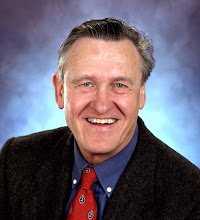The excessive use of mathematics in economics has long been
discussed by professional economists. The topic has now reached the general
public when recently John Robson and Stephen Gordon debated the topic in the
National Post, one of Canada’s two national newspapers.[i]
According to Robson “Mathematical
technique has severe limits, including that you cannot model the economy. There
are too many variables, whose interactions are too uncertain and whose
feedbacks are too complex. In short, it is transcomputable. (sic)”
Gordon argues “Robson’s assessment of the complexities involved in economic analysis is depressingly accurate, but these complexities strengthen, rather than weaken, the case for using models and mathematics as tools for understanding economics.”
The failure of mathematical economists to provide students with
this understanding of the real world is due to the fact that most of them are
poorly prepared to do so. Many come to economics trained in mathematics and
took few if any courses in which they would have learned about economic
institutions, real world practices and history.
A second problem arises from the fact that some mathematical
economists believe that their abstract reasoning has important policy
implications, which often are reported uncritically by media that like the
findings for political and ideological reasons. In fact, mathematical models
never result in valid policy implications since they use many simplifying
assumptions, which logically pre-determine the conclusions and often can be
changed at will.
However, mathematical modelling also brings some benefits to
the profession and the world claimed by Gordon. It has brought rigor to the
formulation of some fundamental ideas in economics, such as the way in which
Adam Smith’s “invisible hand” guided by competition leads to a welfare
maximizing allocation of resources.[iii]
It also is fundamental to the design of computer models that are used with
limited success for economic forecasting and the study of the effects of
government policies.
Assuming that mathematical modelling produces some useful
results and that it is achieved by diverting resources away from more
traditional approaches to economic analysis, the question becomes how many
resources should be devoted to each of the two disciplines.
Our 1986 study argues that the optimum level has been
exceeded because economists specializing in mathematic modelling have formed a
cartel. They have much more time than economists analyzing the real world to devote
to the promoting and praising their work among the public. They scheme and take
over hiring and tenure decisions in economic departments. They become editors
of journals and find referees sympathetic to studies heavy on mathematical
modelling. The resultant publications lead to tenure and ever more of their
friends in university positions. They also are very influential in the committee
that chooses winners of the Nobel Prize in Economics awarded annually by the Swedish
Central Bank.[iv]
Nobel laureate George Stigler has argued that competition
among universities and the success of their economics graduates in finding jobs
in the real world limits the ability of mathematical economists to create such a
cartel and that at any time the use of mathematical economics is at the optimum
level.
Surveys of economists undertaken for our 1986 study showed
that most disagree with Stigler and that research and teaching mathematical
models has been much above optimal. It would be interesting to know what Gordon
and other economists think about this issue in 2016.
[i] The articles are found at http://news.nationalpost.com/full-comment/john-robson-you-cant-compute-your-way-to-a-better-economy
and
http://news.nationalpost.com/full-comment/stephen-gordon-the-case-for-mathematical-models-in-economics.
The references show the titles of the articles, which in turn summarize the
views expressed by the two authors.
[ii] Herbert G. Grubel and Lawrence A.
Boland, “On the
Efficient Use of Mathematics in Economics: Some Theory, Facts and Results of an
Opinion Survey”, Kyklos, August 2986,
found at http://onlinelibrary.wiley.com/doi/10.1111/j.1467-6435.1986.tb00779.x/abstract
[iii] This work has been done by Nobel
laureates Kenneth Arrow and Gerard Debreu. In 1988 I presented a seminar on trade in
services at a research institute in New Dehli, India, which demonstrated to me the
misuse and misunderstanding that can arise from a faulty interpretation of mathematical
modelling. During the discussion a young economist with a PhD from the Massachusetts
Institute of Technology challenged me with the proposition that the mathematical
model by Arrow and Debreu had proven that capitalism did not work since some of
the assumptions they made in their analysis did not hold in the real world. Fortunately,
the discussion of this issue ended after the director of the institute reminded
his colleague that the theme of the seminar was trade in services, not the
merit of capitalism versus socialism.
[iv] In the 1970s Peter Lloyd
and I published a number of papers and the book “Intra-Industry Trade: Theory
and Measurement of Trade in Differentiated Products” (MacMillan, 1976), which
contain very nearly the same models and conclusions reached by Paul Krugman in
his papers on the subject. Krugman received the Nobel Prize in 2008 for his
work, all of which was published several years after the appearance of the
Grubel and Lloyd studies. While we used words and diagrams to develop our
theories, Krugman used mathematical models to explain his. However, we are
pleased to know that the Nobel committee acknowledged our work as having been
the most important inspiration for Krugman who used the empirical evidence we
had provided.
.jpg)